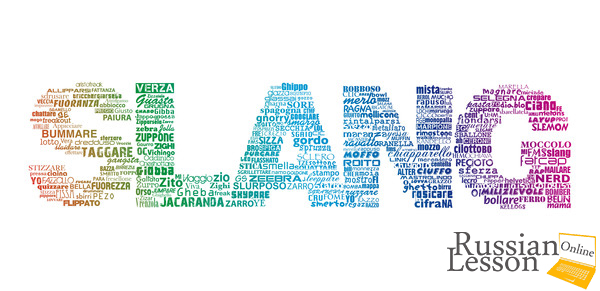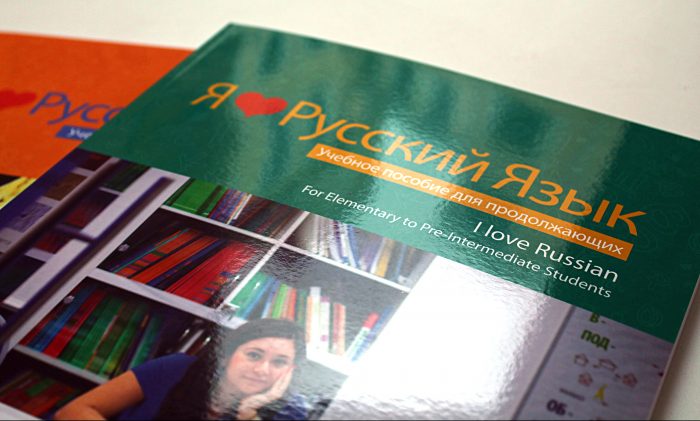
If you are already able to speak Russian, then congratulations! You are on a good way. But even if you are, let’s say, on level B2, you have probably been in situations with Russians, especially younger people, where you did not understand everything they said — either because they were speaking way to fast or simply because they were using Russian slang phrases. When learning a new language, we often tend to forget how important it is to also include those in our vocabulary lists — instead we focus more on formal words or, in general, phrases that are less used in speaking, but more in writing. Here is a list of the slang words/phrases, every Russian learner must know.
1.Офигеть!
This is a very, very common slang word among Russians and you better learn it, so you can understand your Russian friends, or impress them by using it.
It means: ‚Wow‘; ‚that’s wild!‘; ‚bloody hell!‘ — as you can see, you use it to express your amazement or surprise about something.
Example sentence:
“Can you believe I just won a million dollars?”
“Офигеть!”
2. Pазвезло
If you are at a party or in a club with your Russian friends and you already feel pretty drunk, you could use that slang word to explain your drunkenness.
Example sentences:
Меня развезло (= I got drunk)
Его быстро развозит (= he quickly gets drunk; even though he does not drink much)
3. Бухой
This is another slang word for ‚being drunk‘.
4. Прикольно
This slang phrase is also used a lot among Russians. It basically means ‚It’s cool‘; ‚it’s fun‘; or ‚it’s dope‘.
5. Бабки
The literal meaning of this slang word is: grandmas
But people usually use it as a slang word for ‚money’
Example sentence:
Где ты бабки нашёл? (Where did you find the money?)
6. Чёрт
This word means ‚devil’, but you can use it as a slang term for ‚shoot’.
Whether you over salted your dinner, missed the bus or forgot your keys at home —there’s always a reason to say, “shoot!”
Example sentence:
Чёрт, я уронила всю мою еду. (= Shoot, I dropped all of my food.)
7. Чувак/Чувиха
This is a slang word meaning ‚guy‘, ‚dude/chick‘, ‚gal‘
Keep in mind that the word чувиха dates back to the 1920s, when it was used to describe prostitutes — however, the word went mainstream in the 1960s.
Example sentences:
Чувиха возле меня в классе сидит. (= The gal sits next to me in class.)
Чувак co мной вместе работает. (= The guy works with me.)
8. Достал/Досталa
You can use this slang phrase to express that you are annoyed by something or someone.
Example sentence:
Мама звонила 3 раза сегодня, достала меня. (Mom called three times today, she is annoying me.)
Он всегда рассказывает скучные истории, достал уже. (He always tells boring stories, he is annoying me.)
9. Блин
This is an interesting and cute slang word. You have probably heard of or even tried блины in Russia — delicious pancakes. So the literal meaning of this slang word is pancake. However, Russians use it as a way to express annoyance.
10. Круто
Круто is a universal slang term and could be compared to the English word ‚cool’. It can be used in many social situations — to describe appreciation for an object or situation in a casual way.
Example sentence:
Волосы у тебя выглядят не очень круто.
Your hair doesn’t look very cool.
1. Да не гони!
The literal meaning of this phrase is: “Don’t go that fast” or “Don’t drive fast”.
But when people use it, they usually mean: ‚You are talking something unreal‘, ‚I cannot believe you‘ or ‚Don’t lie‘.
Example sentence:
– Я спал с леди Гагой!
– Да не гони!
2. Ну нифига себе!
You can use this Russian slang phrase to express your amazement — It means a surprise that you did not expect. You can compare it to “Wow” in English.
Example sentence:
“Мой кот весит 20 килограмм“
“Нифига себе!” or “Офигеть!”
3. Да ну нафиг!
This sounds similar to the previous one, but this Russian slang phrase actually means “I don’t want to do it” or „To hell with that“.
4. Мне пофиг (пофигу) or Мне до лампочки.
This one is very useful when you want to express that you really do not care about something; or that it does not make a difference to you. The meaning is: “I don’t care!”. You use it when you want to stress that you don’t care about something or don’t find it interesting or relevant. But the first one is more rude than the second.
Example sentence:
В общем я уже 3-ю неделю пытаюсь всех собрать и решить что делаем, сколько скидываемся, куда идем, а всем пофиг никто ничего не хочет решать.
5. Братан, ты спалился!
You have probably heard Russian people use the word ‚Братан’ a lot — it is a slang version of ‚brother‘, which they often use when speaking to their friends. And the verb “спалиться” – literally means “to get burned”. So this slang phrase means: “Bro, you got spotted” or “Bro, somebody saw you” (when actually “bro” did not want anybody to see him).
6. Хрен знает
The literal meaning of this slang phrase is: horseradish knows
What people mean when they use it is: who knows?
When you’re asked a question you simply don’t know the answer to, and no one would, you can answer with this phrase.
Example sentence:
Хрен знает кто будет следующий президент.
However, keep in mind that хрен is a mild swear word, so do not use this phrase in a polite or professional situations. You can compare it to “who the hell knows?”
7. Да нет, наверное
This is a very common slang expression, which literally means: ‚Yes no, might be‘
However, if you hear someone say it, they usually mean ‚no‘.
Example sentence:
– Могу я вам помочь?
– Да нет наверное, спасибо.
8. Ну, давай!
The literal meaning of this is: Let’s …
What this slang phrase actually means is: ‚Bye‘
As you can see, you could use this slang term instead of “до свидания” in informal situations. It is a short form of “давай встретимся позже” (=“let’s meet later on”).
Example sentence:
“А, хорошо, давай!” (= “Ok, bye!”)
The Russian language is extremely rich in slang words (and curse words too). While I was researching Russian slang words/phrases, I came across a website, which is actually a slang/curse dictionary — and it has lots of content. Of course, you do not need to know every single slang word in Russian, but it will definitely improve your speaking skills if you mastered the most common ones. Keep in mind, the more slang words and phrases you know, the easier it will be for you to have proper (though informal) conversations.

Students will be happy to learn that the Russian Government has today announced plans to make Russian language easier in an effort to simplify greater international engagement. …

In a previous post, we revealed that Russians don't really say “na zdarovje” when they toast. While the phrase has been popularised in English language media – and a lot of Russians will nod politely and clink glasses with you if you use it – it’s not something a native speaker would ever…

Improve your Russian while working as an expat? Mission possible! …

What could be a better way for Russian immersion than reading, especially when you read the books that you find interesting and that can give you a better idea of the culture of Russia? Co-founder of Liden & Denz, Walter Denz shares his experience on how reading Russian literature can improve your…

Learning a language is hard. Keeping it when you don't have classes is even harder. So this article is not about how to learn Russian, but how to maintain your Russian. …

Learning the Russian language can be a long, hard slog. Days, weeks, months spent poring over textbooks, attempting to understand the cases, crying over aspects, endeavouring to pronounce ы and щ. …

Many language learners desire to communicate well with native speakers of the language or those who speak it. I have always dreamt of talking more fluently and texting through social media with my Russian friends better. It is no exaggeration to say that good communication skill gives you an…

Have you ever wondered which famous people can speak Russian? While some celebrities have Russian ancestors and therefore know the language, there are also others who had to learn it from scratch. Check out this list to find some fellow Russian speakers in the celebrity world. …